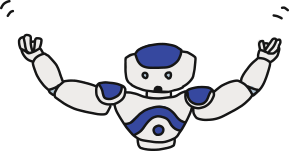- すべて
- 学術雑誌論文
- 国際会議論文
- 国際会議アブストラクト
- 書籍・解説等
- 国内会議論文

- すべて
- 学術雑誌論文
- 国際会議論文
- 国際会議アブストラクト
- 書籍・解説等
- 国内会議論文
-
Riko Yokozawa, Kentaro Fujii, Yuta Nomura, and Shingo Murata, “Deep Active Inference with Diffusion Policy and Multiple Timescale World Model for Real-World Exploration and Navigation,” Submitted, 2025. arXiv
-
Kentaro Fujii and Shingo Murata, “Real-World Robot Control by Deep Active Inference With a Temporally Hierarchical World Model,” IEEE Robotics and Automation Letters, Vol. 11, No. 1, pp. 890–897, 2026. DOI: 10.1109/LRA.2025.3636032 arXiv
-
Tadahiro Taniguchi, Yasushi Hirai, Masahiro Suzuki, Shingo Murata, Takato Horii, and Kazutoshi Tanaka, “System 0/1/2/3: Quad-process theory for multi-timescale embodied collective cognitive systems,” 31(4) , pp. 465–496, Artificial Life, 2025. DOI: 10.1162/ARTL.a.12 arXiv
-
Takazumi Matsumoto†, Kentaro Fujii†, Shingo Murata, and Jun Tani, “Active Inference with Dynamic Planning and Information Gain in Continuous Space by Inferring Low-Dimensional Latent States,” Entropy, 27(8), 846, 2025. DOI: 10.3390/e27080846
† These authors contributed equally to this work. -
Kentaro Fujii, Takuya Isomura, and Shingo Murata, “Real-World Robot Control Based on Contrastive Deep Active Inference with Demonstrations,” IEEE Access, Vol. 12, pp. 172343–172357, 2024. DOI: 10.1109/ACCESS.2024.3477306
-
Takafumi Soda, Shingo Murata, Asako Toyama, Shinsuke Suzuki, Yoshihiko Kunisato, Kentaro Katahira, and Yuichi Yamashita, “Psychometric Properties of Hierarchical Psychiatric Symptoms on the General Population,” Submitted, 2024. PsyArXiv
-
Tadahiro Taniguchi, Shingo Murata, Masahiro Suzuki, Dimitri Ognibene, Pablo Lanillos, Emre Ugur, Lorenzo Jamone, Tomoaki Nakamura, Alejandra Ciria, Bruno Lara, and Giovanni Pezzulo, “World models and predictive coding for cognitive and developmental robotics: frontiers and challenges,” Advanced Robotics, Vol. 37, No. 13, pp. 780–806, 2023. DOI: 10.1080/01691864.2023.2225232 arXiv
Advanced Robotics Best Survey Paper Award -
Yuta Takahashi, Shingo Murata, Masao Ueki, Hiroaki Tomita, and Yuichi Yamashita, “Interaction between Functional Connectivity and Neural Excitability in Autism: A Novel Framework for Computational Modeling and Application to Biological Data,” Computational Psychiatry, Vol. 7, Issue 1, pp. 14–29, 2023. DOI: 10.5334/cpsy.93
-
Taisuke Kobayashi, Shingo Murata, and Tetsunari Inamura, “Latent Representation in Human-Robot Interaction with Explicit Consideration of Periodic Dynamics,” IEEE Transactions on Human-Machine Systems, Vol. 52, Issue 5, pp. 928–940, 2022. DOI: 10.1109/THMS.2022.3182909 arXiv / Movie
-
Namiko Saito, Tetsuya Ogata, Hiroki Mori, Shingo Murata, and Shigeki Sugano, “Tool-use Model to Reproduce the Goal Situations Considering Relationship among Tools, Objects, Actions and Effects Using Multimodal Deep Neural Networks,” Frontiers in Robotics and AI, Vol. 8, Article 748716, pp. 1–15, 2021. DOI: 10.3389/frobt.2021.748716
-
Yuta Takahashi, Shingo Murata, Hayato Idei, Hiroaki Tomita, and Yuichi Yamashita, “Neural network modeling of altered facial expression recognition in autism spectrum disorders based on predictive processing framework,” Scientific Reports, Vol. 11, Article number: 14684, pp. 1–14, 2021. DOI: 10.1038/s41598-021-94067-x / PsyArXiv
Press Release: Keio Univ. (in Japanese) / Tohoku Univ. (in English) -
Hayato Idei, Shingo Murata, Yuichi Yamashita, and Tetsuya Ogata, “Paradoxical sensory reactivity induced by functional disconnection in a robot model of neurodevelopmental disorder,” Neural Networks, Vol. 138, pp. 150–163, 2021. DOI: 10.1016/j.neunet.2021.01.033
-
Hayato Idei, Shingo Murata, Yuichi Yamashita, and Tetsuya Ogata, “Homogeneous Intrinsic Neuronal Excitability Induces Overfitting to Sensory Noise: A Robot Model of Neurodevelopmental Disorder,” Frontiers in Psychiatry, Vol. 11, Article 762, pp. 1–15, 2020. DOI: 10.3389/fpsyt.2020.00762
Press Release (in Japanese): NCNP / Waseda Univ. -
出井勇人, 村田真悟, 尾形哲也, 山下祐一, “不確実性の推定と自閉スペクトラム症-神経ロボティクス実験による症状シミュレーション,” 精神医学, Vol. 62, No. 2, pp. 219–229, 2020. DOI: 10.11477/mf.1405206009
-
Hayato Idei, Shingo Murata, Yiwen Chen, Yuichi Yamashita, Jun Tani, and Tetsuya Ogata, “A Neurorobotics Simulation of Autistic Behavior Induced by Unusual Sensory Precision,” Computational Psychiatry, Vol. 2, pp. 164–182, 2018. DOI: 10.1162/cpsy_a_00019
-
Ryoichi Nakajo, Shingo Murata, Hiroaki Arie, and Tetsuya Ogata, “Acquisition of Viewpoint Transformation and Action Mappings via Sequence to Sequence Imitative Learning by Deep Neural Networks,” Frontiers in Neurorobotics, Vol. 12, Article 46, pp. 1–14, 2018. DOI: 10.3389/fnbot.2018.00046
-
Shingo Murata, Yuxi Li, Hiroaki Arie, Tetsuya Ogata, and Shigeki Sugano, “Learning to Achieve Different Levels of Adaptability for Human–Robot Collaboration Utilizing a Neuro-dynamical System,” IEEE Transactions on Cognitive and Developmental Systems, Vol. 10, Issue 3, pp. 712–725, 2018. DOI: 10.1109/TCDS.2018.2797260
-
Tatsuro Yamada, Shingo Murata, Hiroaki Arie, and Tetsuya Ogata, “Representation Learning of Logic Words by an RNN: From Word Sequences to Robot Actions,” Frontiers in Neurorobotics, Vol. 11, Article 70, pp. 1–18, 2017. DOI: 10.3389/fnbot.2017.00070
-
Shingo Murata, Yuichi Yamashita, Hiroaki Arie, Tetsuya Ogata, Shigeki Sugano, and Jun Tani, “Learning to Perceive the World as Probabilistic or Deterministic via Interaction with Others: A Neuro-Robotics Experiment,” IEEE Transactions on Neural Networks and Learning Systems, Vol. 28, Issue 4, pp. 830–846, 2017. DOI: 10.1109/TNNLS.2015.2492140
-
Tatsuro Yamada, Shingo Murata, Hiroaki Arie, and Tetsuya Ogata, “Dynamical Integration of Language and Behavior in a Recurrent Neural Network for Human–Robot Interaction,” Frontiers in Neurorobotics, Vol. 10, Article 5, pp. 1–17, 2016. DOI: 10.3389/fnbot.2016.00005
-
Shingo Murata, Hiroaki Arie, Tetsuya Ogata, Shigeki Sugano, and Jun Tani, “Learning to Generate Proactive and Reactive Behavior Using a Dynamic Neural Network Model with Time-Varying Variance Prediction Mechanism,” Advanced Robotics, Vol. 28, Issue 17, pp. 1189–1203, 2014. DOI: 10.1080/01691864.2014.916628
-
Shingo Murata, Jun Namikawa, Hiroaki Arie, Shigeki Sugano, and Jun Tani, “Learning to Reproduce Fluctuating Time Series by Inferring Their Time-Dependent Stochastic Properties: Application in Robot Learning via Tutoring,” IEEE Transactions on Autonomous Mental Development, Vol. 5, Issue 4, pp. 298–310, 2013. DOI: 10.1109/TAMD.2013.2258019
- すべて
- 学術雑誌論文
- 国際会議論文
- 国際会議アブストラクト
- 書籍・解説等
- 国内会議論文